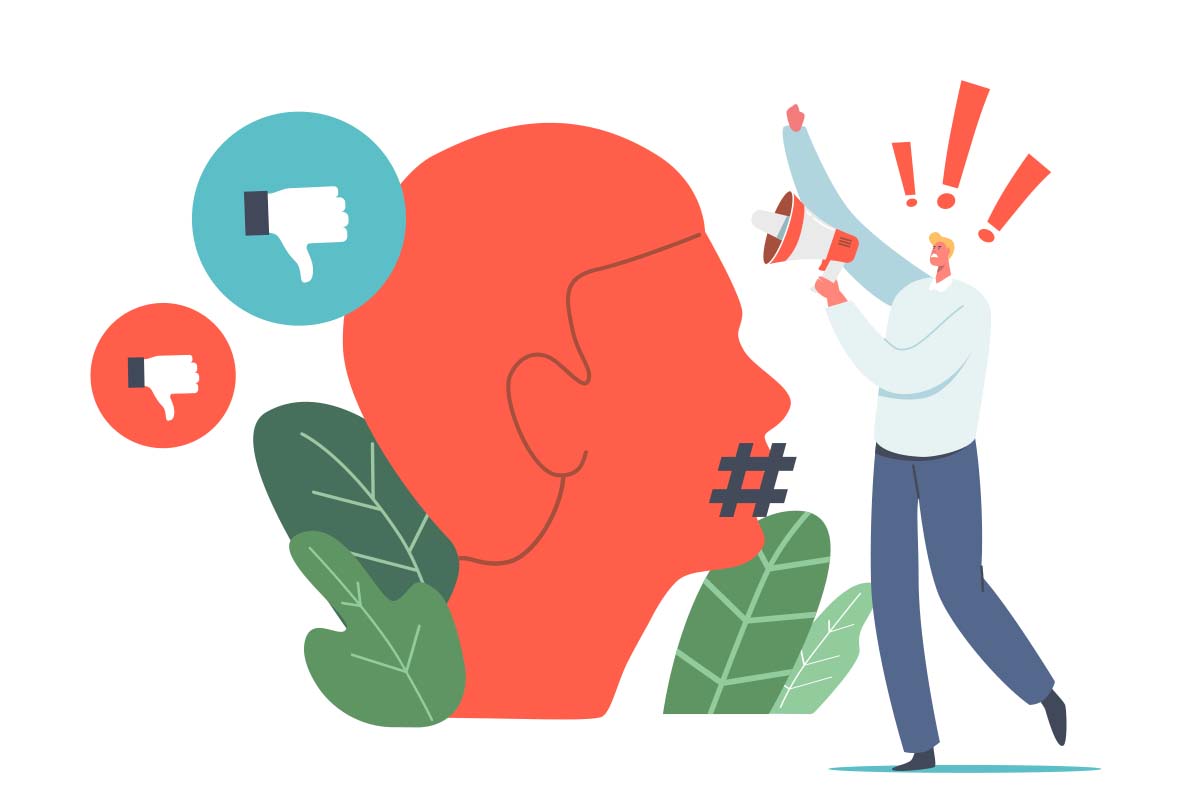
Armie Hammer, Chrissie Tegan, and most recently Chris Noth, are all big-named celebrities who’ve been “cancelled.” Cancel culture, or the ostracization of a person, brand, or organisation from social or professional circles or by the general public, has become a powerful and pervasive phenomenon. Through the instantaneous nature of social media, a person can be cancelled in just a few hours, usually following comments or actions they or their company have taken in the virtual space.
I believe the origins of cancel culture could lie in the #MeToo movement, when numerous powerful men in show business were named and shamed by their victims for their sexual misconduct, at times before facing any criminal trials. Here, companies and the public were quite rightly quick to disassociate from these men named as abusers. With the #MeToo movement taking place primarily online and victims sharing their stories through the hashtag, everyone was able to hear these victims’ stories from the source, immediately and without any media spin.
Social media has created a direct relationship and dialogue between the public and public figures. This connectivity has made it easier than ever for people to essentially boycott celebrities. Whilst accountability can certainly be a positive thing for keeping those in high places from abusing their power, cancel culture does come with its own set of issues.
It’s fair to say that most celebrities and influencers are fearful of being cancelled. But why would someone who has not committed any crimes nor holds particularly controversial or hateful views on matters be concerned with being cancelled? What could go wrong if someone isn’t on the extreme end of the scale that the #MeToo abusers are on?
The main issue is: cancel culture has the habit of highlighting nuance on an issue whilst wilfully ignoring blatant context.
I couldn’t talk about cancel culture without talking about Molly-Mae. In case you’re not an avid Gen Z social media user, here’s a quick run-down: The former Love Island star and current PrettyLittleThing creative director made the following comments on the podcast, Diary of a CEO: “Beyoncé has the same 24 hours in the day that we do and I just think, like, you’re given one life and it’s up to you what you do with it, you can literally go in any direction…When I’ve spoken about that in the past, I have been slammed a little bit, with people saying, ‘It’s easy for you to say that, you’ve not grown up in poverty, you’ve not grown up with major money struggles, so for you to sit there and say that we all have the same 24 hours in a day, it’s not correct. And I’m like, but technically what I’m saying is correct. We do – so I understand that we all have different backgrounds and we’re all raised in different ways and we do have different financial situations, but I do think if you want something enough, you can achieve it.”
The main uproar following her comments highlighted how she ignores systemic issues which impact people’s financial circumstances such as racism, sexism, ableism, and classism, which cannot be overcome so simply. Additionally, she faced backlash due to the low wages PLT factory workers are paid, a meagre £3.50 an hour. This suggests a level of exploitation and hypocrisy incited by Mae, as her comment assumes that every job is a meritocracy.
All these critiques are extremely valid and should be addressed and highlighted to Molly Mae and those who support her. But rather than opening a dialogue where correction and healing might occur, cancel culture and social media narratives banged on for weeks about this issue, resulting in insulting jokes and comments which could be severely damaging to mental health. It’s not unheard of that many celebrities and influencers tend to struggle mentally due to the volume of hate comments they receive at times.
Ironically, cancel culture seems somewhat hypocritical itself. Whilst the intention to highlight a social issue or add nuance to a topic that has been negated by mainstream narratives or comments, cancelling the wrongdoer has potential to be extremely harmful itself, meting out harsh, swift, and often overly severe judgment. In instances like Molly-Mae, who made an ignorant statement without hateful intent, using the opportunity to educate rather than cancel would have been more valuable. Cancel culture tends to alienate people, rather than educating them on what they fail to consider.
In an ideal world, Molly Mae would’ve genuinely learnt from her comments. Enlightened to the lived struggles of others, she may have used her platform for better, perhaps even starting by using her influence to increase factory workers’ pay. But with the way things went, all we got was a defensive generic PR statement instead. The world remains unchanged, Molly Mae remains employed yet more defensive, and rather than energising positive movement forward, we all just wound up with hurt feelings and zero progress.
Holding people in power accountable is important, but calling them out without offering a chance for change or dialogue means we are creating an atmosphere of fear. We ought to remember that to err is human, even when you’re famous. Challenging people to fix their mistakes—rather than erasing them from the face of public life—would be a considerably more productive way to handle our criticisms.
In short, maybe it’s time we cancel cancel culture…